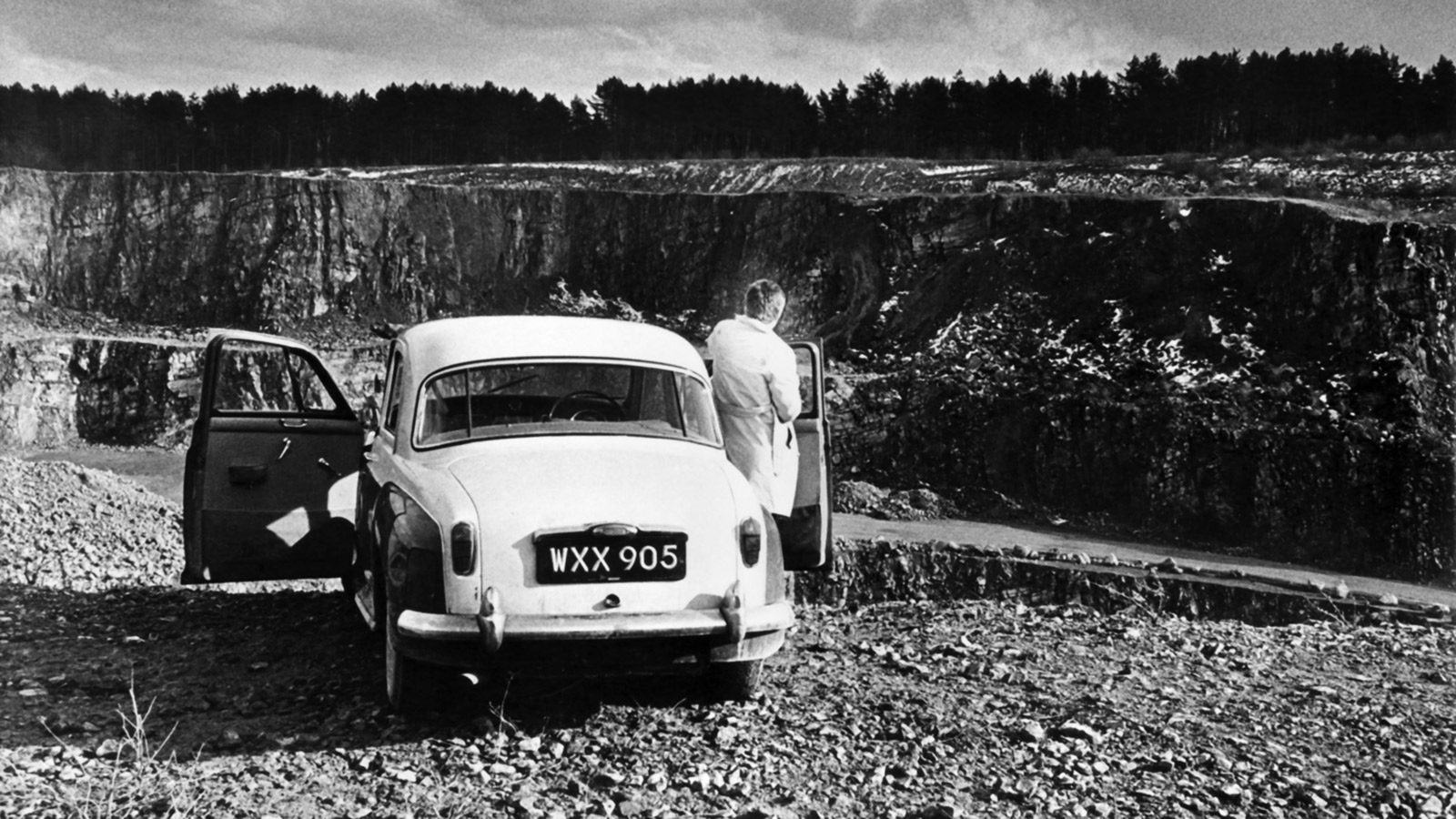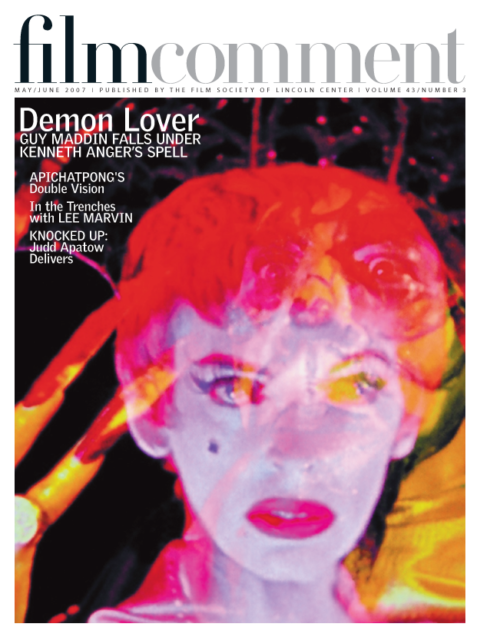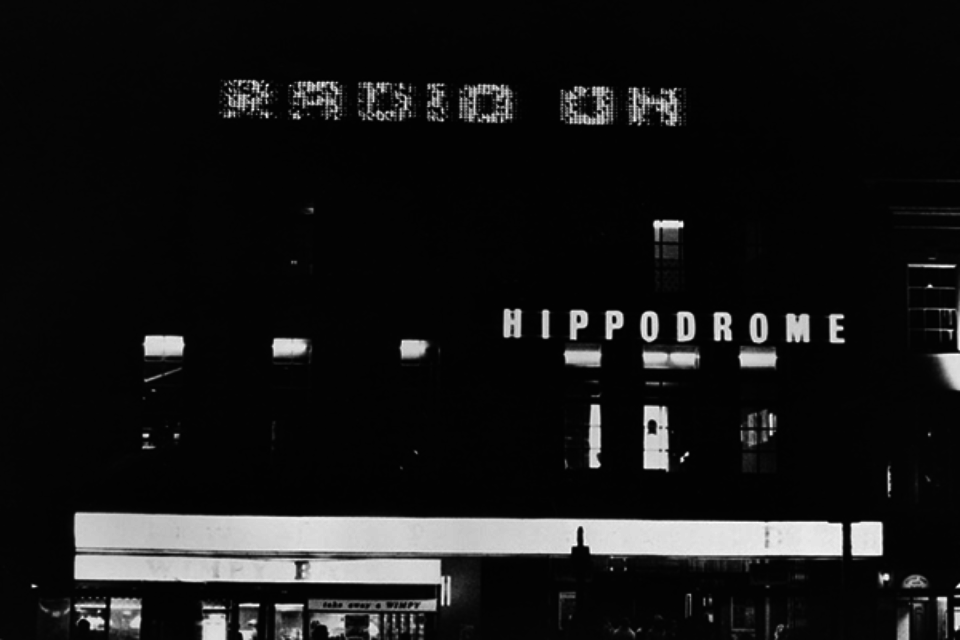
Event Horizon
In a mini-memoir written in 2004 for the journal Granta, Chris Petit quotes a fragment of dialogue from a moment in Wim Wenders’s Kings of the Road. The scene in question, like much of the film itself, takes place on the open highway near Germany’s East-West border. Elvis Presley blares from the radio. The driver, a German, sings along in English. He catches himself in the act and shouts to his traveling companion, “The Americans have colonized our subconscious!” Judging by Petit’s Radio On, the British film critic turned director’s exquisitely bleak yet thoroughly transcendent 1979 debut, it’s the Germans who’ve taken over his brain. It’s no accident that the film was produced by Wenders, shot by Martin Schäfer (who worked extensively with Wenders), and had its sound recorded by Martin Müller (ditto). Petit spent a lot of formative time in Germany. He has such passion for the New German Cinema period that when reading his recollections, you can feel a little something inside him die when he learns of Fassbinder’s demise.

Radio On (finally available on DVD from the good folks at Plexifilm) has been described as an “anti-road movie.” The definition holds water only in the sense that it’s a film so thoroughly steeped in its own intentional absences, negations, and abysmal voids that it feels like some form of antimatter. In fact, the roads (often empty) have as much personality as the characters.
In the film’s opening sequence—a five-minute single take accompanied by David Bowie’s “Heroes”— a roving handheld camera explores the interior of an apartment whose only occupant is glimpsed briefly, motionless, in a bathtub. We soon learn that it’s the dead brother of the film’s radio-dj protagonist Robert (David Beames). He’s apparently killed himself. This prompts Robert’s odyssey from his London home to his brother’s flat in Leeds. The use of “Heroes” establishes the film’s sonic mindset: to use pop music both as psychological buffer (practically a narcotic) and as an ironic (audio) knife capable of cutting straight to the bone of things. As life drains from a dead man’s body, Bowie sings: “We could be heroes/Just for one day.” (The original song, by the way, was recorded in Berlin.)

Radio On
The German electronic music pioneers in Kraftwerk play diegetic, non-diegetic, and symbolic roles in Radio On. The final communiqué from Robert’s brother is a small parcel containing three cassette tapes by the band and a short note that limply reads “happy birthday/brother.” The film’s two recurring Kraftwerk songs (“Ohm Sweet Ohm” and “Radioactivity”) are harbingers of future sounds, as well as somewhat ominously robotic endpoints of a rock & roll epoch. The point is underscored when Robert pulls up to a remote gas station and goes in search of its attendant. He eventually locates the aptly named Just Like Eddie (played by Sting), strumming a guitar and singing Eddie Cochran’s “Three Steps to Heaven.” Robert sings along and then gets his gas. Eddie sits in Robert’s car and randomly switches on the tape deck. The fuzzy drone of “Ohm” comes on mid-song. Eddie, in an allergic reaction, immediately shuts it off. So much for a musical bonding session.
In addition to Kraftwerk, fragments of a Devo song flit by in an appropriately mutant manner. Consider the inbred trail: Brian Eno produced the album “Heroes,” which features guitar work by Robert Fripp, whose eerie ambient solo piece “Urban Landscape” also graces Radio On’s soundtrack. At one point in time Bowie, Eno, and Fripp (not to mention Iggy Pop) were all eager to be Devo’s first producer. (Eno got the job.) Bowie, according to rock historian Simon Reynolds, once publicly proclaimed, “This is the band of the future.” So which of Devo’s postmodern tunes does Petit choose for his forward-looking film? Their epileptic/cathartic cover version of the Rolling Stones’ “Satisfaction.” And it’s a perfect fit.







